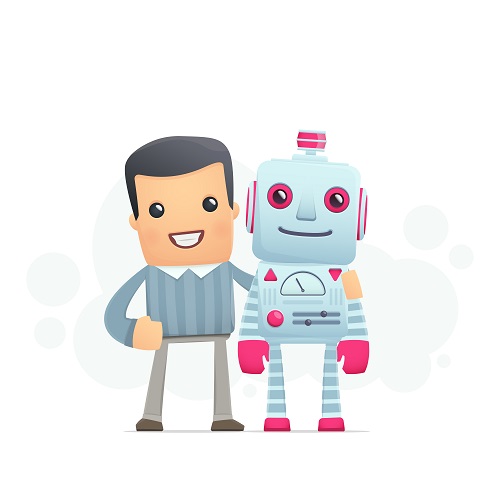
One the one hand, we have people who fear a robot takeover, complete with robot overlords and helplessly unemployed humans. On the other hand, we have robots as buddies. Recent research supports the latter vision of the future with robots.
39 subjects in the UK were matched up with Pepper, a humanoid robot, for a couple of Zoom conversations a week over a period of 5 weeks. The researchers were wondering whether social robots, which have previously been shown to create positive feelings in humans, would be less appealing over a longer period of time.
In fact, they found that people liked the robots better as time passed. People were more likely to describe the social robots as comforting and competent at the end of the experiment than at the beginning. They also disclosed more information about themselves as they got to know Pepper better.
Most importantly, the human beings reported that they were less lonely and had fewer negative feelings. They had generally better moods after the 5 week study than before.
The pandemic
The research was undertaken during the pandemic. Loneliness, along with stress, anxiety, and depression, rose during the pandemic, when many people were separated from other human beings. Robotic conversation partners were, it seemed, better than isolation.
Researchers found that people who were already experiencing loneliness and negative thoughts got more from their interactions with the robot than those who were not already feeling stress or sadness. This might suggest that the pandemic-era problems had more to do with the success of the robotic conversations than the robots themselves.
Still, loneliness has been identified as a significant public health issue. The U.S. Surgeon General alerted Americans to an “epidemic” of loneliness earlier this year. Loneliness can contribute to high blood pressure, obesity, cardiovascular disease, strokes, and cognitive decline. With increasing numbers of Americans living alone and reporting a lack of close friends, hoping for stronger human connections might not be enough.
Murali Doraiswamy of the Duke Institute for Brain Sciences, agrees. “Until society prioritizes social connectedness and eldercare, robots are a solution for the millions of isolated people who have no other solutions.”
Ethical concerns
There are a number of ethical concerns around the use of social robots. One is the possibility that these robot buddies might limit human interactions. There is evidence that social media can have negative effects on face-to-face relationships. Companion robots could take the place of human relationships.
Since social robot companions are often suggested as a solution for elder care, there is also concern that individuals with dementia might be deceived by robots. One study found that people surveyed were very uncomfortable with the idea that people might think that they were talking to human beings or animals rather than robots. Yet people currently have conversations with bots in social media, without always realizing that this is taking place. Generative AI makes this increasingly likely.
There is also the possibility that social robots might be unavoidably biased toward business. Just as software for hiring replicates human biases, companion robots might naturally replicate the interests of the people who build them. Social media algorithms work to keep people on the social media platform paying attention to ads. The same thing could happen with robot buddies.
Time for regulation?
These topics have been discussed in the abstract for years. It may now be time to take action before tech advances force decisions.
